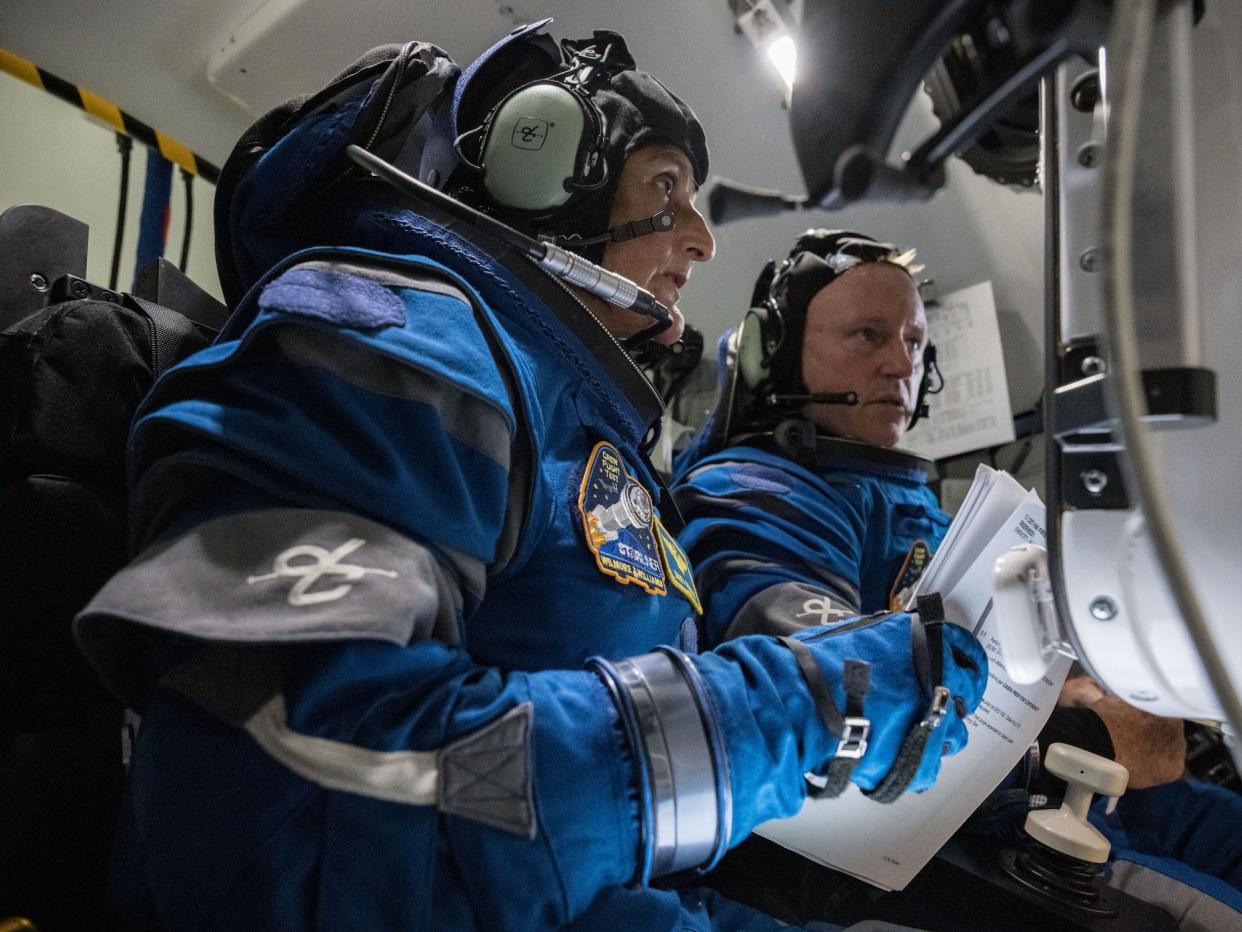Boeing says its spacecraft is leaking but it's still safe to launch US astronauts next week

NASA and Boeing are proceeding with a space launch after discovering a helium leak.
Starliner is set to carry two US astronauts to the International Space Station next week.
A Boeing exec, Mark Nappi, said the "design vulnerability" was "not a safety-of-flight issue."
NASA and Boeing said a helium leak in Boeing's Starliner spacecraft was "stable" and wouldn't prevent two astronauts from launching into space next week in a mission more than a decade in the making.
NASA and Boeing execs said in a press conference on Friday that the cause of a leak in Starliner's propulsion system had been identified and that it was safe to fly.
A launch attempt on May 6 was scrubbed hours before takeoff because of a separate issue, after which a "small" leak was discovered on a flange on one of Starliner's thrusters, said Steve Stich, a NASA program manager.
Mark Nappi, a Boeing vice president, said that days after the leak was discovered, "we proved to ourselves that the leak was stable." He said the "design vulnerability" was "very remote" and "not a safety-of-flight issue."
Stich said, "We can handle up to four more leaks, and we can handle this particular leak if that leak rate were to grow even up to 100 times."
Boeing's Starliner is set to take two NASA astronauts, Butch Wilmore and Suni Williams, to the International Space Station on June 1 and then back after one week. There are backup launch opportunities on June 2, 5, and 6.
Boeing is playing catch-up with SpaceX, whose Dragon spacecraft has been transporting astronauts to and from the ISS since 2020. Starliner's voyage comes amid scrutiny of Boeing's safety culture around its separate passenger-plane division.
Starliner encountered issues on uncrewed test flights in 2019 and 2021.
Spokespeople from both Boeing and NASA referred Business Insider to Friday's press conference.
Read the original article on Business Insider


